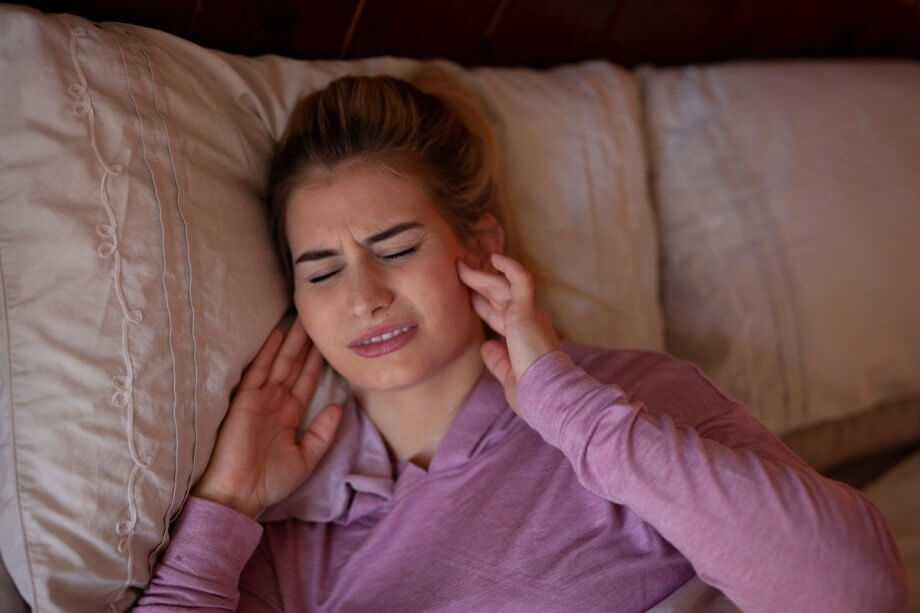TMJ dysfunctions include many conditions impacting the jaw joints and the adjacent muscles and ligaments. They often result in jaw pain, headaches, and problems opening and closing the mouth.
While the term “TMJ” is frequently used to refer to these conditions, it should be noted that “TMJ” specifically refers to the actual jaw joint. On the other hand, “TMD” is the acronym for temporomandibular joint dysfunction, also known as temporomandibular joint disorder.
If you’ve been wondering about symptoms occurring in and around your jaw, here are the most common TMD symptoms to watch out for.
Clicking Sounds
In some cases of TMD, individuals may experience a clicking, popping, or grating sound emanating from the TMJ when they open or close their mouths. This sound is typically attributed to the shifting of the disk within the joint. While clicking alone is not necessarily a cause for concern, studies indicate that about a third of people have jaw joints that click. However, when accompanied by pain or limited jaw function, such as the jaw getting momentarily “stuck” in an open or closed position, it may indicate TMD.
Muscle Pain
Discomfort in the cheeks (masseter muscles) and temples (temporalis muscles), where the two major pairs of jaw-closing muscles are located, is a common symptom of TMD. If you wake up with soreness and stiffness, it may be linked to habits like clenching or grinding your teeth at night.
Joint Pain
Pain originating from one or both jaw joints may technically be described as arthritis (“arth” – joint; “itis” – inflammation) of the TMJ. Radiographic assessments sometimes reveal arthritic-looking TMJs in individuals with no symptoms of pain or dysfunction, while others may exhibit significant symptoms but have apparently normal joints on x-ray images. Although there is no cure for arthritis anywhere in the body, certain medications and treatments can help alleviate arthritic symptoms.
Frequently Asked Questions About TMJ
Will TMJ Get Worse Without Treatment?
It’s likely that those who don’t get treatment for TMJ will experience more severe symptoms as time goes on. Unfortunately, the longer someone lives with TMJ without treatment, the greater the chances it will progress. When long-time TMJ patients finally decide to seek treatment, they will often need more intensive treatment for an extended time.
Dental professionals recommend a treatment plan as soon as symptoms appear to ensure that the disorder is managed and hopefully remedied long-term.
Does TMJ Disorder Last Forever?
Many people suffering from TMJ pain or dysfunction will have life-long symptoms. However, by enlisting the help of a dental professional who can provide a personalized treatment plan, their symptoms may be reduced significantly.
TMD Diagnosis and Treatment in Westbury
If you are experiencing these TMD symptoms or noticing other unusual problems with your mouth or jaw, it’s in your best interest to seek care from a Westbury dentist as soon as possible. At JM Dental of Westbury, our dental professionals treat you with care and compassion, explaining your treatment options. Let us help you get the dental treatment you need. Contact our office today at 516-334-3444 or go online to schedule an appointment.

